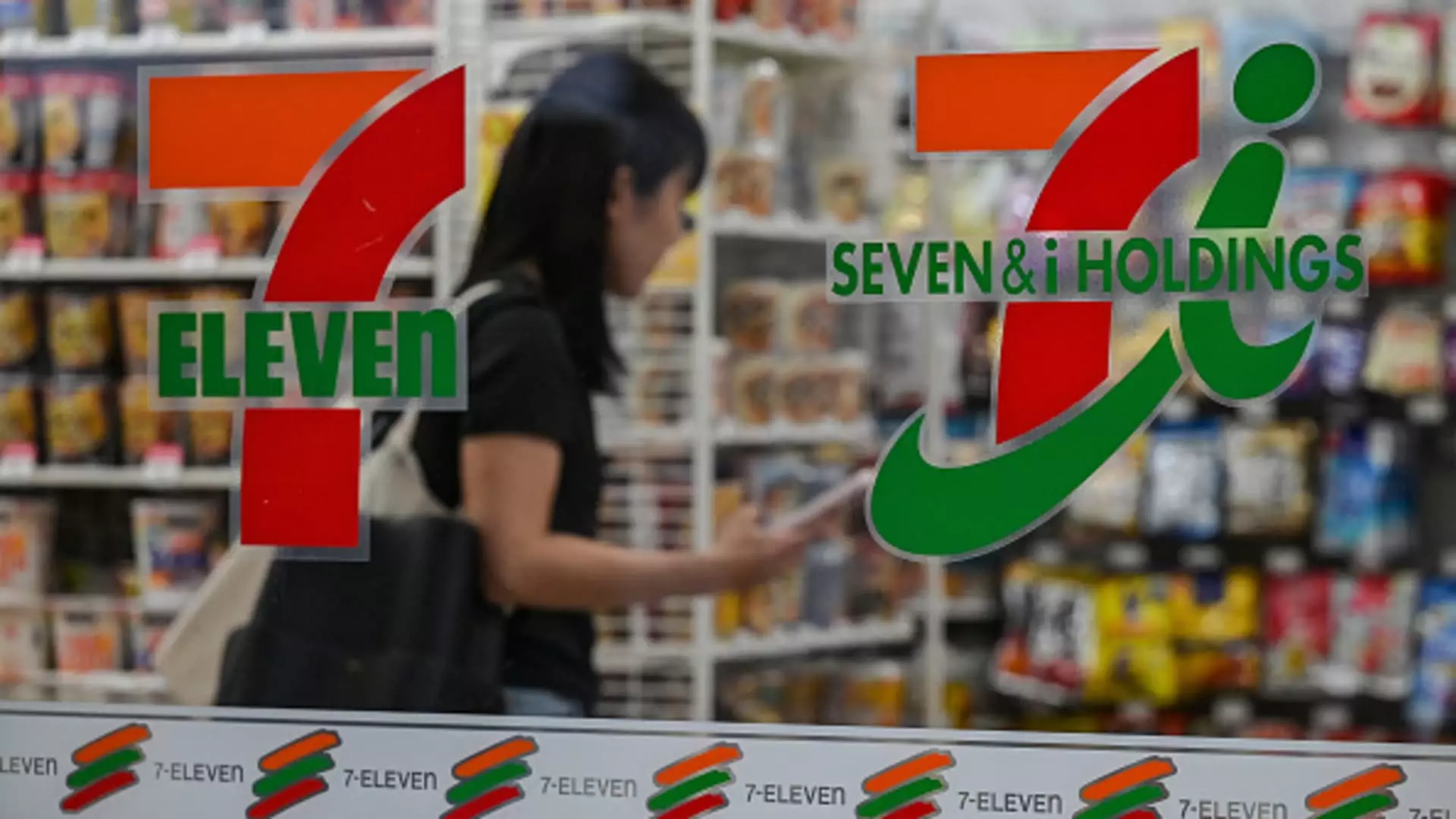In the dynamic landscape of the retail sector, few stories catch the eye as compellingly as that of Seven & i Holdings. The Japanese convenience store titan, known for its flagship 7-Eleven brand, recently made headlines by revising its earnings forecasts dramatically. As its financial performance has faltered amidst shifting consumer behaviors and external pressures, the company is contemplating significant restructuring efforts which include spinning off non-core entities. This article delves into the company’s recent performance, its restructuring strategies, and the potential impact of a hostile takeover attempt from Canadian operator Alimentation Couche-Tard.
Seven & i Holdings has undoubtedly found itself in a precarious position with its latest profit forecast projecting a staggering 44.4% decrease. Originally expecting a net income of 293 billion yen for the fiscal year ending February 2025, the company has now adjusted its expectations to 163 billion yen, equating to about $1.09 billion. This drop came on the heels of a dismal first half where, despite generating 6.04 trillion yen in sales—higher than anticipated—the actual net profit fell short of the company’s own target by a considerable margin, landing at 52.24 billion yen.
The company attributes its declining profits to shifts in consumer behavior, particularly among international customers, who are opting for more cautious spending practices. This trend highlights broader economic anxieties which are reshaping consumer habits in retail markets worldwide. The company also reported a substantial charge of 45.88 billion yen due to the spin-off of its online supermarket division, illustrating the financial strain it is under while attempting to rationalize its operations.
In a bid to regain financial footing and investor confidence, Seven & i Holdings is embarking on an ambitious restructuring plan. The company is moving towards consolidating its diverse portfolio by establishing an intermediate holding entity that will oversee various business segments, including its supermarket food and specialty stores. This move appears to be a strategic alignment aimed at streamlining operations and enhancing operational efficiencies amidst growing investor scrutiny.
By consolidating 31 units, the company is keen to respond to calls for a leaner organizational structure that focuses on core businesses. Such restructuring efforts may not only improve financial performance but also allow for a sharper strategic focus—an essential factor in navigating today’s competitive retail environment.
Adding another layer of complexity to Seven & i Holdings’ situation is the looming takeover interest from Alimentation Couche-Tard (ACT). The Canadian company made a bid that the Japanese retailer initially deemed insufficient, leading to a rejection followed by negotiations that have reportedly intensified. The revised offer of approximately $18.19 per share represents a substantial increase and values Seven & i at around 7 trillion Japanese yen, marking a significant escalation from the initial proposal.
Nicholas Smith, a strategist at CLSA, voiced concerns regarding the potential for a hostile takeover, a scenario increasingly common in the competitive landscape of retail. In essence, a hostile takeover occurs when a bidding company attempts to gain control over another company without its management’s consent. While industry experts have noted the potential obstacles in executing such a strategy within Japan, investor dissatisfaction with Seven & i’s current management could create an environment ripe for further challenges.
As the dust settles from these tumultuous developments, the sentiment among investors fluctuates significantly. Shares of Seven & i have surged over 33% following the revelation of ACT’s interest, indicating that many investors view this acquisition as positive. However, this optimism is tempered with concerns regarding the company’s long-term viability and ability to adapt to ongoing market shifts.
Jesper Koll, head of Japan at Monex Group, noted that ACT’s revised bid demonstrates a commitment to a potential acquisition, coupled with a considerable premium over previous trading prices. Nonetheless, the stakes are high as the company attempts to balance immediate financial pressures, restructuring initiatives, and external takeover threats.
The story of Seven & i Holdings encapsulates the multifaceted challenges and pressures endemic to the modern retail landscape. The company’s proactive restructuring efforts stand as a testament to its commitment to maintaining relevance amid external forces while navigating the delicate dynamics of potential consolidation. As these developments unfold, the future of Seven & i Holdings will be closely watched—not only by investors but by analysts keenly interested in how legacy retailers adapt in an increasingly competitive and evolving market environment.

